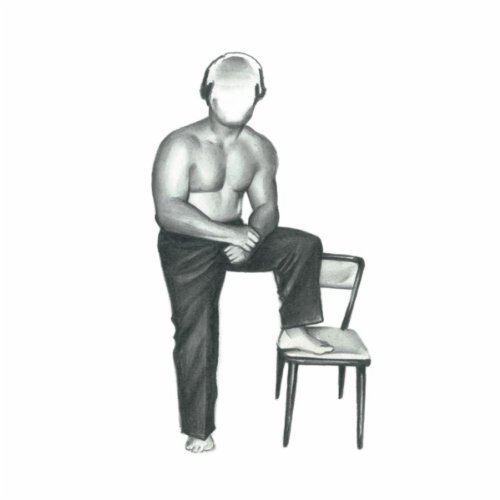
Deerhoof
Offend Maggie
Release Date: Oct 7, 2008
Genre(s): Indie, Rock
Record label: Kill Rock Stars
Music Critic Score
How the Music Critic Score works
Buy Offend Maggie from Amazon
Album Review: Offend Maggie by Deerhoof
Excellent, Based on 9 Critics
Based on rating 9/10
Buck and Judy, third song from Deerhoof’s latest opus, Offend Maggie, has been pounding around my head for days. The trumpet-sounding riff that follows the song’s simplistic stomp-stomp-beat/stomp-stomp-beat, overtop the swirling keys and sporadic waves of sonic disarray just clings to the frontal lobe. The music itself speaks of colossal revelation or discovery, maybe a journey’s end or some other milestone or life event.
Based on rating A-
How to categorize the San Francisco art-rockers’ latest stylistic grab bag? Singer Satomi Matsuzaki spends most of Offend Maggie cooing bilingual puns while raw garage riffs and delicate psychfolk harmonies collide behind her. And then there’s ”This Is God Speaking,” a minute-plus interlude on which she mutters wordlessly over staticky electronic blips. Yet nearly every tune sports a hummable melody — many of them sublime — which makes this album one of the more accessible entries in Deerhoof’s willfully strange catalog.
Based on rating 8.5/10
Deerhoof has always been a band that simultaneously simplifies and complicates. On the one hand, they use a simple language of melody, noise and beat with the basic rock instrumentation drums, guitar and voice. On the other hand, they combine these building blocks into crazy and disorienting constructions of sound. Offend Maggie finds them in a slightly expanded sonic territory compared with their past albums, but it seems that inside of this expansion, Deerhoof’s sophisticated innocence has mellowed somewhat.
Based on rating 4/5
Garry Mulholland wonders where the odd yet accessible Americans have been all his life San Francisco's Deerhoof have been together in one form or another since 1994, but feel like a new group. So few of us heard their first 10 albums of elliptical art-pop that last year's extraordinary Friend Opportunity came like a bolt out of the US underground blue, and consequently became their bestselling album so far. What we heard was a band playing a constantly shifting mixture of psychedelia, post-punk, jazz and pop, which should have been difficult and forbidding, but was given an accessible focus by the sweet vocals and expressionist lyrics of bassist/chanteuse Satomi Matsuzaki.
Based on rating 8/10
Elsewhere, Offend Maggie gives equal time to the charming but not too cutesy Deerhoof with the hyper-expressive "Basket Ball Get Your Groove Back," where Matsuzaki becomes the ball as she describes how the players dance and weave on the court, and "Snoopy Waves," which buries its bubblegummy melody under drums and distortion. The more challenging Deerhoof surfaces on "Eaguru Guru," which name-checks the German prog rock band Guru Guru and nods to prog with its massive keyboards and guitars, intricate rhythms, and suite-like movements. "Fresh Born"'s towering bassline and spiraling guitars make it Deerhoof's version of funk-rock, while "This Is God Speaking"'s distorted vocals and rinky-dink electronics sound like an homage to Experimental Dental School.
Based on rating 7.7/10
Note: Also serves as review for Deerhunter's Microcastle. Go to rate that album by clicking here.can thank Deerhunter and Deerhoof for calling attention to the noble antlered animal. Last year, the bands’ Cryptograms and Friend Opportunity offered equal parts ambition and experimentation. This year both follow-up their breakthroughs, so deer around the world can sleep a little easier, knowing their namesakes are keeping the kingdom in the spotlight.
Based on rating 3/5
Offend Maggie - the prolific hoofers' 12th long-play in as many years - starts with a great, urgent stop-and-start guitar riff on their strong opener The Tears And Music Of Love. That said, vocalist Satomi Matsuzaki still sounds like she's singing to herself in her bedroom, and sometimes her weirdo vocals go too far. One throwaway track has her lackadaisically singing something barely intelligible about rabbits and basketball.
Opinion: Excellent
Deerhoof, now 10 albums into their career, have settled into a particular style. This isn’t necessarily a negative criticism, as a number of bands with longevity – Sonic Youth or Stereolab say – have transient strategies that eventually settle down into a coherent, stable pattern. Deerhoof perhaps hit their stride with Apple O’ and Milk Man, both unified albums – as opposed to simply being an assemblage of songs – when compared to previous efforts.
Opinion: Very Good
This S.F. quartet's unwieldy oeuvre is an easy target for derision, but after a decade, Deerhoof has finally straightened up. Musicianship is the key: New second guitarist Ed Rodriguez adds a nice sheen to John Dietrich's low end, drummer Greg Saunier's maniacal playing is its most metered yet, and singer Satomi Matsuzaki's singing and lyrics have matured (the latter a little less than the former).
'Offend Maggie'
is available now

